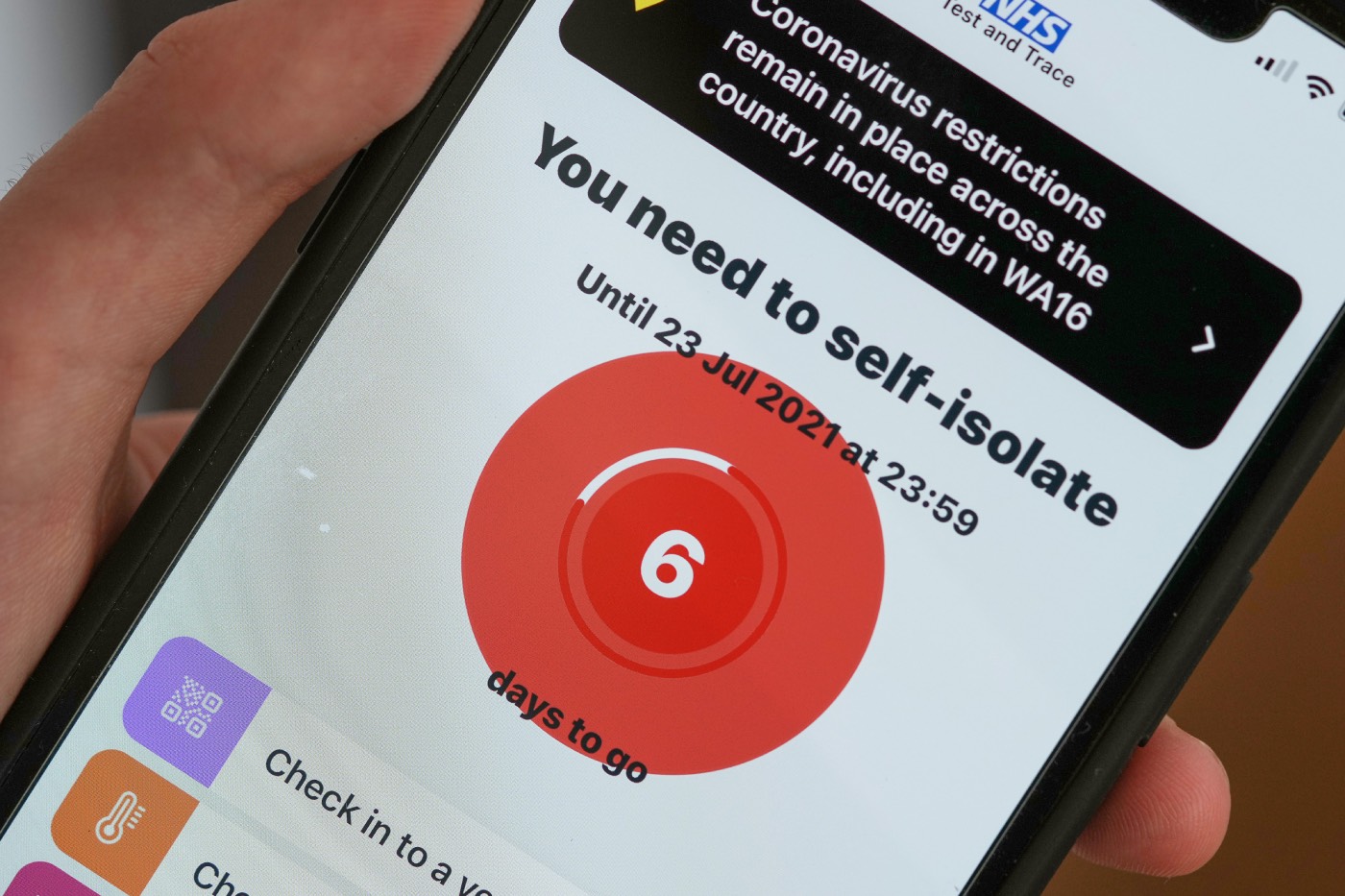The new Covid self-isolation rules explained
Double-jabbed and under-18s no longer need to isolate if they are close contacts of Covid case

A free daily email with the biggest news stories of the day – and the best features from TheWeek.com
You are now subscribed
Your newsletter sign-up was successful
Covid isolation rules in England are changing from today, with people who are fully vaccinated no longer required to quarantine if they come into contact with someone who has tested positive for the virus.
The shift in rules, which was announced last month as part of step four of the government’s Covid-19 roadmap, has been hailed by Health Secretary Sajid Javid as “another step back towards normality”.
In recent weeks, the so-called “pingdemic” has seen people obliged to self-isolate if they had contact with someone who had tested positive. At its peak in July, the number of self-isolation alerts sent in England and Wales in a week was nearly 700,000.
The Week
Escape your echo chamber. Get the facts behind the news, plus analysis from multiple perspectives.

Sign up for The Week's Free Newsletters
From our morning news briefing to a weekly Good News Newsletter, get the best of The Week delivered directly to your inbox.
From our morning news briefing to a weekly Good News Newsletter, get the best of The Week delivered directly to your inbox.
From today, instead of self-isolating, those who are double jabbed or aged under 18 identified as close contacts of positive Covid cases are advised instead to get a free PCR test as soon as possible. You can order a PCR home test online or by calling 119, or you can go to a test site.
The development has been broadly welcomed. “The pingdemic is FINALLY over,” cheers the Daily Mail as it hails “one of the biggest steps the country has taken on the road back to normality”.
Metro says the move means we no longer need to be “scared of hearing that fateful ping”, leading “many to breathe a sigh of relief as the UK moves ever closer to a semblance of normality”.
However, one expert has called for caution. Professor Stephen Reicher, of St Andrews University in Scotland, told BBC Radio 4’s Today programme that “one of the major reasons” why cases didn’t rocket after the so-called Freedom Day of 19 July was that “people remained cautious, people remained careful, so I have a good amount of faith in the good sense and the caution of the public”.
A free daily email with the biggest news stories of the day – and the best features from TheWeek.com
In a separate interview with Sky News, Reicher called for more government support for those who still have to isolate.
He said: “If you now make it a choice to people as to whether to take a test and therefore to have to self isolate if you’re positive, people aren’t going to take that test if they can’t afford to be positive.
“We need to give people the support so that they can make the right choices to keep themselves safe and keep others safe.”
Quoted on the government website, UK Health Security Agency chief executive Dr Jenny Harries said: “It is important that close contacts continue to come forward for a PCR test, in order to detect the virus and variants of concern.”
-
 Quentin Deranque: a student’s death energizes the French far right
Quentin Deranque: a student’s death energizes the French far rightIN THE SPOTLIGHT Reactions to the violent killing of an ultra-conservative activist offer a glimpse at the culture wars roiling France ahead of next year’s elections.
-
 Secured vs. unsecured loans: how do they differ and which is better?
Secured vs. unsecured loans: how do they differ and which is better?the explainer They are distinguished by the level of risk and the inclusion of collateral
-
 ‘States that set ambitious climate targets are already feeling the tension’
‘States that set ambitious climate targets are already feeling the tension’Instant Opinion Opinion, comment and editorials of the day
-
 A Nipah virus outbreak in India has brought back Covid-era surveillance
A Nipah virus outbreak in India has brought back Covid-era surveillanceUnder the radar The disease can spread through animals and humans
-
 Covid-19 mRNA vaccines could help fight cancer
Covid-19 mRNA vaccines could help fight cancerUnder the radar They boost the immune system
-
 The new Stratus Covid strain – and why it’s on the rise
The new Stratus Covid strain – and why it’s on the riseThe Explainer ‘No evidence’ new variant is more dangerous or that vaccines won’t work against it, say UK health experts
-
 RFK Jr. vaccine panel advises restricting MMRV shot
RFK Jr. vaccine panel advises restricting MMRV shotSpeed Read The committee voted to restrict access to a childhood vaccine against chickenpox
-
 RFK Jr. scraps Covid shots for pregnant women, kids
RFK Jr. scraps Covid shots for pregnant women, kidsSpeed Read The Health Secretary announced a policy change without informing CDC officials
-
 New FDA chiefs limit Covid-19 shots to elderly, sick
New FDA chiefs limit Covid-19 shots to elderly, sickspeed read The FDA set stricter approval standards for booster shots
-
 RFK Jr.: A new plan for sabotaging vaccines
RFK Jr.: A new plan for sabotaging vaccinesFeature The Health Secretary announced changes to vaccine testing and asks Americans to 'do your own research'
-
 Five years on: How Covid changed everything
Five years on: How Covid changed everythingFeature We seem to have collectively forgotten Covid’s horrors, but they have completely reshaped politics